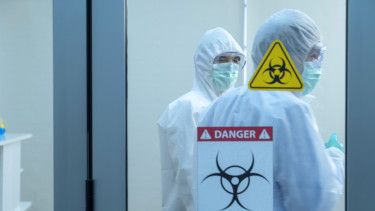Demand for COVID-19 vaccine booster shots plummets in Hungary

The ‘vaccination campaign’ announced for January remains in place in February too. Why is it necessary? Because on three days of the week, Hungarians may get their first, second or third doses of a selection of COVID-19 vaccines without prior registration and appointment booking at various vaccination locations.
The shots were administered after on-site registration at vaccination locations between 2 and 6 p.m. on Thursdays and Fridays and between 10 a.m. and 6 p.m. on Saturdays. In February, the same conditions remain on the first two days, but vaccination locations will be open one hour longer on Saturdays (until 7 p.m.).
A couple of important facts about Hungary's vaccination status:
- nearly 3.4 million Hungarians (34.5%) of the population have not received a single dose of any COVID-19 vaccine'
- vaccination helps avoid infection and effectively prevents severe disease and death;
- two doses provide seriously diminished effectiveness against infection by Omicron;
- about 3.74 million Hungarians (38.4% of the population) are vaccinated with three doses of COVID-19 vaccines;
- nearly 5.68 million Hungarians got their 2nd jab more than four months ago;
- on the wild assumption that all of the 3rd doses were administered to members of the above group, there are still about 1.94 million people in that group that have not received their third jab;
- 886,450 Hungarians received their 3rd dose more than four months ago and 438,000 more than five months ago;
Fourth doses have also been made available. According to the relevant regulation, the vaccinating physician may decide to administer the 4th dose (2nd booster) of a COVID-19 vaccine if requested by a person over 18 years of age who has already received three doses and four months have elapsed since the 3rd jab.
István György, state secretary in charge of public affairs at the Prime Minister's Office, previously shared information about the weekend vaccination campaigns, but it seemed that he (they) calculated with four days (Thursday to Sunday) instead of three (Thursday to Saturday). For your convenience and to avoid any misunderstanding about the ‘huge success’ of the vaccination campaign, we have collected data for three and also for four days.
If you are not a numbers person, just ignore the tables and look at the charts.
First, let’s see the figures for the first ‘weekend’ of February, both for three days (Thursday to Saturday) and for four days (Thursday to Sunday).


And now, let’s see how the first weekend of February fits into the pattern.
The key changes compared to the previous weekend were the following if we take into consideration shots administered between Thursday and Saturday:
- after an 8.5% w/w drop in 1st doses, nearly 48% fewer Hungarians asked for their first shot of a COVID-19 vaccine;
- the 38% growth in the number of second doses administered was followed by a nearly 16% decline here;
- after a 5% drop in 3rd doses administered, 65% fewer people asked for their third (booster) jab.
- as a result, ‘only’ 63% of all doses administered were third doses, down from 77% a week earlier.

Here are key changes compared to the previous weekend in respect of shots administered between Thursday and Sunday:
- after a nearly 10% w/w drop in 1st doses, nearly 50% fewer Hungarians asked for their first shot of a COVID-19 vaccine;
- the 45% growth in the number of second doses administered was followed by an over 17% decline here;
- after a 6% drop in 3rd doses administered, 68% fewer people asked for their third (booster) jab.
- as a result, ‘only’ 62.6% of all doses administered were third doses, down from almost 78% a week earlier.

Despite undisputed scientific evidence that COVID-19 vaccines are effective at preventing not just infection, but also severe disease and death, almost 35% of the population have not received a single jab. The cabinet, which bets almost solely on vaccination when it comes to combating coronavirus, could have thought that the hassle of online registration and appointment-booking was keeping masses away from vaccination locations and these vaccination campaigns will sort that problem out. The charts show mixed results, and definitely not a lasting positive impact.
Note that these are data only for the vaccination campaign days, and third (booster) doses in general remain vastly more in demand than first and second doses combined.


Cover photo: Getty Images







